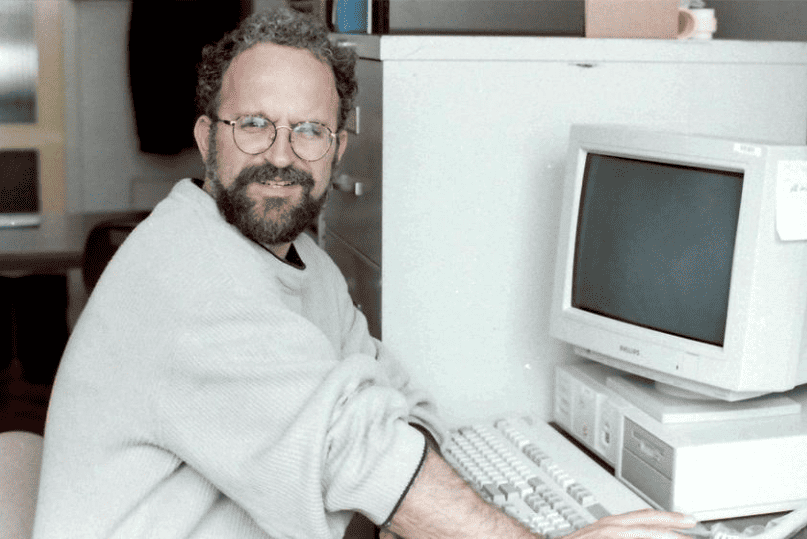
ASML hasn’t always been this 42,000-employee, number 1 tech company in Europe. On the contrary, it started with “poverty and negligence”, back in 1984. Eight years later, it was almost killed because of a lack of money and partners. Fortunately, there was one person on the board of Philips who kept believing in the semicon initiative and supported by a government that wasn’t afraid of taking risks, growth could finally take off. “Our history teaches us that, next to poverty and negligence, it’s about perseverance. And good luck, that’s also true”, ASML’s CEO Peter Wennink said at the Deep Tech Connect event.
When Wennink was asked to prepare some slides for his keynote, he just said no. Instead, he wanted to tell a story because “when you get to my age, it feels better to tell a story than to give a presentation.”
- CEO Peter Wennink Making shared ASML’s story at the Deep Tech Connect event.
- making connections is crucial for deep tech start-ups, he said.
- The Brainport region is ideal because companies are willing to share their thoughts with you.
Brainport region
The Brainport region is a special one, Wennink emphasized. “Many of our suppliers are now large companies, we really helped to create this ecosystem. All these companies are now part of the network. In a way, we were all forced to work together. And you then see that this region, created out of the remnants of Philips, has incredible ecosystem capabilities from a deep tech point of view. We have digital power, software people, fine mechanics, mechatronics, measurement inspection systems, laser technology, semiconductors, you name it. All the ingredients to create deep tech.”
One of the reasons that the Brainport region is so special, Wennink added, is “that people take the time actually to connect. That’s typical for this area, which is why the Brainport area is so successful. People are willing to collaborate and leave something on the table to share. I think this aspect is especially critical in the stage of start-ups. You have to be willing to share to have access to that talent. That’s one of the main reasons for a company’s success, to have access to talent.”
Physical phonebook
Ultimately, Wennink said, it is about connecting people to relevant knowledge. “You need to integrate talent and science with the knowledge of the existing industry, the industry competencies, the innovation, and the creativity that comes out of the people. Talent is critical. And it’s what you will find here. That’s also why this ecosystem is so important to us. The ecosystem is critical for industry; it’s a source of talent and knowledge. We learned probably more from our scale-up suppliers because of their creativity and the known boundaries that they have when you’re an innovative start-up and a scale-up.”

The whole thing about deep tech is that it takes time, Wennink added. “Look at our history, it took us ten years to get off. We couldn’t have made it without the ecosystem without the support of many others. And that still is the case. That’s why we support HighTechXL, DeepTechXL, and the MakeNext Platform. We know how crucial it is for young companies to make the connection, but we still experience the importance of this for ourselves as well. Our ecosystem is a source of talent and knowledge. We need the ecosystem to challenge us. It’s the ecosystem that will help ASML to attract the right talent.”
Wennink said the industry has a responsibility to open itself up as a source of information. “Philips had this physical phonebook. If we had a technical problem, we picked up the phone and called somebody in Philips NatLab. And they figured it out. They came by, they talked about our challenges, and you made more progress in two days than in five months. There’s no physical phonebook anymore, but it still works like that. This is why we partner with organizations like HighTechXL and MakeNext platform; you are part of our ecosystem if you’re part of those networks. So from there, if you need specific knowledge, you can come to ASML, talk to our engineers, system engineers, or other experts, and we can help you. People tell us that this way, they learn more in one day than in six months. This is why it’s so important that we need to connect.”
Industrialization
The connection is even more needed for deep tech start-ups because of the complex process of manufacturing and industrialization of the products. “To succeed in the market, your product needs to be robust. And what you typically see with prototypes offered to potential customers is that these are not robust. This is why this area, the Brainport region, is so important: when you have an idea, you have access to industrialization knowledge. And whether it’s with ASML, with VDL, or with some of our suppliers like NTS, these people have the industrial knowledge to make something robust. The connection must be there from the start, or you’ll waste time. The connection gives you credibility.”
It’s also a way to reach funding. “Money results from great ideas, great people, and credibility. And you can support the credibility by having the right people, with the right background, and the industrial environment and ecosystem that supports your idea so that you can industrialize.”

At the end of the day, it’s about using the “bigger Brainport ecosystem” to go from a great idea to connections to credibility. Following this path, Wennink expects the chances of acceleration for a deeptech company will be good. “Together, we’ve created an ecosystem that, from a deep tech point of view, is probably unique in the world. It’s a nugget. It’s a rough diamond. It’s up to all of us to polish it.”







